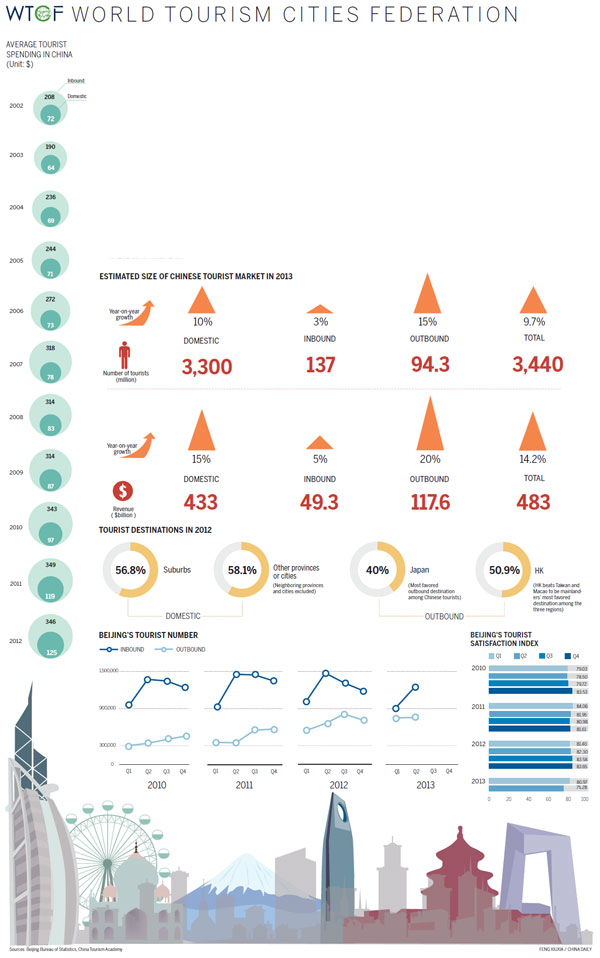Tourists change spending pattern
Leisure, entertainment start to replace luxury shopping
Outbound tourism has shown signs of weakening spending power for high-end products as tourists become more focused on what exactly they want from a holiday, a leading tourism expert said.
There has been a fall in tourists spending more than 5,000 yuan ($800) during each outbound trip, according to China Tourism Academy outbound tourism researcher Jiang Yiyi.
"Outbound tourism is no longer a privilege of the rich," she said, adding that tourists are more rational in their approach to spending.
Thanks to rapid economic development, more residents of second- and third-tier cities are able to go overseas for their holidays, according to the China Outbound Tourism Development 2013 report, released by the China Tourism Academy.
For example, in the United States, shopping is still listed as a main purpose for visiting the country but the percentage of tourists citing this as their main reason has fallen by 6.8 percentage points.
However, the number of those citing leisure and entertainment as their main reasons has risen by 5 percentage points. At the same time, in Hong Kong, travelers from the Chinese mainland are more keen on practical products, a major trend change from the previous focus on top luxury brands.
As a result of this trend, spending from mainland travelers goes down.
"Tourists are better prepared before they travel," said Li Mengran, a public relations specialist at Beijing UTour International Travel Service.
"They will check styles, sizes and prices of what they want at shopping centers on the mainland and compare their prices when they arrive in the US. If the prices in the US are higher than home prices, they will not buy."




















